Cocktail Queries: What’s the Best Rum to Use in a Daiquiri?
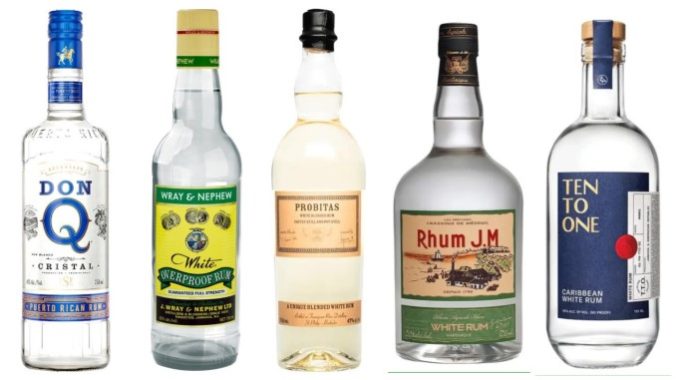
Cocktail Queries is a Paste series that examines and answers basic, common questions that drinkers may have about mixed drinks, cocktails and spirits. Check out every entry in the series to date.
The classic daiquiri cocktail is a study in simplicity and subtlety–an aspect of the drink that is still not fully understood by many drinkers, even cocktail fans, who instead associate the term “daiquiri” with frozen, fruit-infused drinks that bear little resemblance to its traditional form. This is certainly something I’ve wasted no time in griping about in the past, and I’ve already gone long on the sublime nature of the classic daiquiri, and all the aspects one might consider in putting together a perfect, harmonious version of the cocktail. Suffice to say, it’s one of those drinks where there are so few elements in play–just rum, lime, sugar–that your individual choices of those ingredients, and especially the ratio in which you combine them, really plays an especially big part in the quality of the results.
So with that said, I want to dive in more specifically to the rum side of the equation, as in which rums should you try in a daiquiri? All of the below are potentially great options, but they depend on what type of daiquiri you really want to achieve. I’ll explain below how each of them plays in the classic cocktail. Please note: We’re holding ourselves to “white rum,” as misleading as that term can be, considering that most of these still have some degree of aging, because rum without color presents an aesthetically pleasing daiquiri. Can you use darker aged rums as well? Sure. It’s not traditional, but it can be delicious.
But with that said, let’s put together some variations here on the classical daiquiri.
1. Don Q Cristal Rum
ABV: 40% (80 proof)
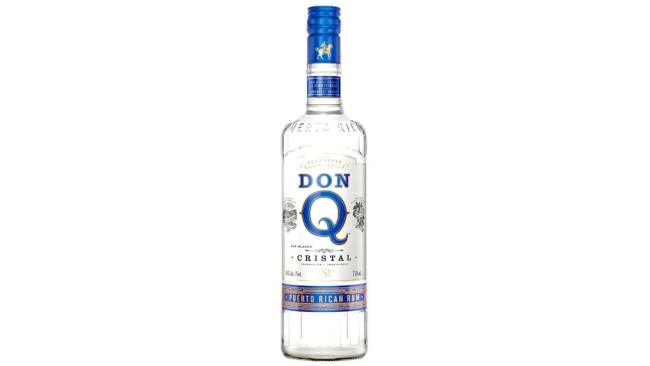
If you’re going to experiment with the daiquiri as a cocktail, then you have to start at the most archetypal version of the drink. That means you’re making one with inoffensive, unaged or lightly aged column still rum from the Caribbean, and that means you might as well go cheap and pick up a high-value bottle like Don Q Cristal. This rum simply fits the bill in terms of making a classic daiquiri, being fairly neutral, with light sweetness, flashes of banana fruitiness and subtle hints of oak. Like many of the leading rums of this type on the market, it’s lightly aged and then filtered to remove color, leaving it with more flavor than fully unaged column still molasses rums, which can be fairly close to vodka in terms of their profile.
Don Q Cristal will make a very light, refreshing daiquiri that drinks effortlessly easily–the Michelob Ultra of daiquiris, if you will. The ethanol and rum presence will be quite muted, which means you may even want to reduce the lime and sugar ratios slightly. All in all, I can’t say this is my personal favorite type of daiquiri, but it’s one of the most ideal versions for hot weather and outdoor drinking. This is all about crisp refreshment and drinkability. It’s entirely too easy to drink one of these in a couple of swigs, so be warned.
An alternate choice would be something like Angostura White Oak Rum.
Foursquare Probitas White Blended Rum
ABV: 47% ABV (94 proof)
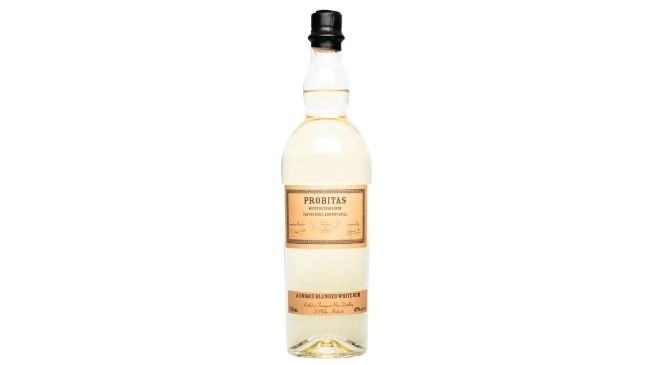
Probitas is a very popular daiquiri rum these days, and for good reason–it brings together a lot of elements that work well together, and has enough complexity and subtlety to shine through in a daiquiri that is significantly more interesting to sip on than most of the lightly aged column still rums out there. This is a blend of three rums from two distilleries: Unaged column still and lightly aged pot still rum from Foursquare in Barbados, and unaged post still rum from Jamaica’s Hampden Estate. The Barbados component provides structure and the base for the blend, with the Jamaica component providing more funky, fruity flourishes. You will notice that the blend is not perfectly clear or “white,” having picked up a very light straw yellow shade.
In a daiquiri, Probitas provides a really lovely, rounded profile without any sharp edges. Modest sweetness and vanilla hints pair with modest tropical fruitiness and more deep, roasted fruit notes, with hints of fresher sugar cane–though I find this one favors the fruit more than the cane. The word I come back to is “round,” as this is a little bit richer as a daiquiri, and not quite as lean. In terms of balance, it’s very close to the center of the bullseye.
Ten to One White Rum
ABV: 45% (90 proof)
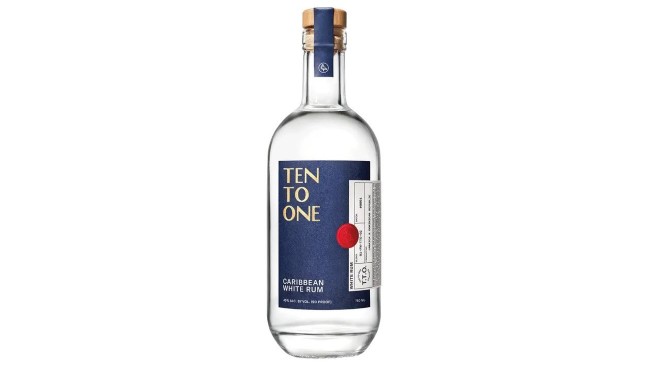
Ten to One offers another “does is all” blend that is tremendously versatile and adaptable in any number of classic cocktails, but for my money this is also one of the most satisfying single bottles you can use for a classic daiquiri. The rum here is a blend of column still rum from the Dominican Republic and high-ester Jamaican pot still rum, and the results are excellent–fruity and vivacious, but also capturing a lot of herbal and grassy sugar cane character as well.
In a daiquiri, this rum really stands out with its varietal characteristic, offering notes of pepper, citrus and florals along with an ever-present herbal grassiness. Whereas in an uninspiring daiquiri it can sometimes be difficult to pull specific notes from the lime, sugar and dilution, Ten to One White Rum maintains its own character throughout, without being too ostentatious about it. The result is still a pretty refreshing daiquiri, but with some backbone to it.
A suitable alternate choice capturing some of the same notes would be Denizen 3 Year Aged White Rum, which is another high-value blend.
4. Rhum JM Agricole Blanc
ABV: 50% (100 proof)
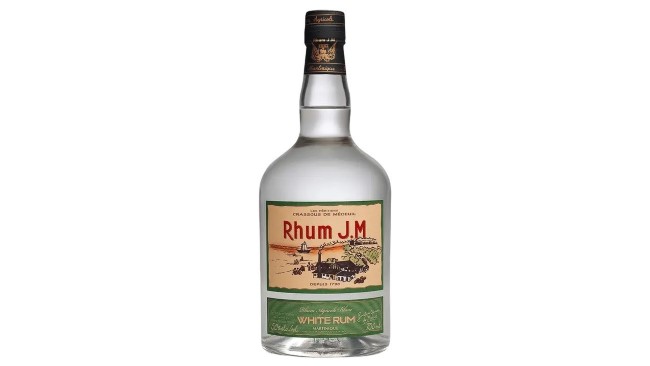
At some point in your daiquiri journey, you really need to try at least one version of the drink made entirely or partly with unaged, riotously flavorful rhum agricole. The defining aspect of this style of rum, which tends to hail from the French-speaking Caribbean (Martinique, Guadeloupe, etc.), is that it is produced from fresh-pressed sugar cane juice rather than molasses, the byproduct of crystalized sugar manufacturing. This tends to lead to rhum agricole expressions, especially unaged ones, retaining a lot more of the green and vegetal/grassy/earthy characteristics of the sugar cane itself. Rhum JM Agricole Blanc is a classic example, available in a wide range of strengths, from 80 proof, to 100, to 110. They’ll all make a flavorful daiquiri; it’s just a question of how much punch you want.
In a classic daiquiri recipe, an unaged agricole rhum like this is absolutely bursting with flavor. These make for an extremely fresh, vibrant, plant-y daiquiri. Gone are the subtle vanilla and molasses tones, or the roasted fruitiness–instead, an agricole daiquiri is likely to highlight bright and tart citrus, along with grassiness, resin, earthy/mushroomy notes, and occasionally spice as well. I would expect this Rhum JM daiquiri to be very bright, refreshing and exotic, but more angular and less smooth and round than something like the Probitas.
Any of the classic unaged rhum agricole brands can also be swapped in as substitutes, such as Rhum Clement, Trois Rivieres or Neisson Agricole Blanc.
5. J. Wray and Nephew Overproof
ABV: 63% (126 proof)
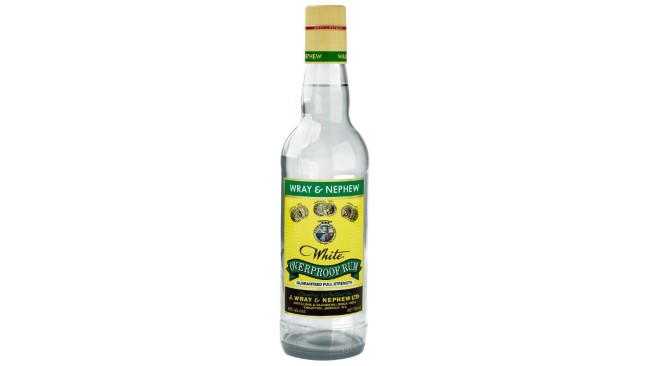
The daiquiri is, by nature, really meant to be an approachable, easy-drinking cocktail. When you think of them you tend to think of refreshment, or drinking multiple daiquiris in quick succession. But there’s also nothing saying that you can’t make a bruiser of a daiquiri with a hugely characterful, intense rum as well. That description would certainly apply to the widely consumed Jamaican staple J. Wray and Nephew Overproof, which would give your cocktail huge ester-forward “rumminess” and overripe fruit notes. When you absolutely, positively want to get that rum-forward daiquiri, this is certainly one way to do it.
Suffice to say, J. Wray and Nephew will make a much boozier, but very flavorful daiquiri, one that will be dominated by notes of molasses, pineapple and overripe banana. Nor do you have to hold to the same ratio as you would normally use in a daiquiri–you can always remove a quarter or half oz. of rum to make this a little less intense, or you can shake it for a somewhat longer period to achieve a little more dilution and chilling. Either method can make this daiquiri a little bit more easygoing, though some will just want the full flavor bomb experience.
At the end of the day, it’s all a matter of your choice, but I suspect that one of the rums on this list will make a daiquiri you judge to be just right.
Jim Vorel is a Paste staff writer and resident liquor geek. You can follow him on Twitter for more drink writing.






































